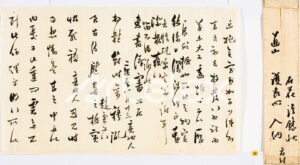Cho Byung-se: A Loyal Statesman and Martyr of Late Joseon
1. Life and Government Service
Cho Byung-se (1827 – December 1, 1905) was a high-ranking official of late Joseon and a patriot remembered for his unwavering integrity. His courtesy name was Chi-hyeon (穉顯), and his pen name was Sanjae (山齋). He belonged to the Yangju Jo clan. After passing the civil service exam during King Cheoljong’s reign, Cho rose steadily through the ranks and served as Right State Councillor in 1889 and Left State Councillor in 1893. However, following the 1894 Gabo Reform that introduced a modernized cabinet system, he resigned all posts and retired to Gapyeong.
2. Protest Against the Eulsa Treaty
In 1905, after the signing of the Eulsa Treaty, which made Korea a protectorate of Japan, Cho vehemently opposed it. Along with figures like Min Young-hwan and Shim Sang-hoon, he traveled to the capital to petition Emperor Gojong to punish the five officials responsible for signing the treaty. Despite his appeals, Japanese intervention blocked direct access to the court, and his petitions were rejected or ignored.
3. Japanese Obstruction and Final Resistance
Cho camped outside the royal palace for several days, continuing to submit memorials in protest. Eventually, Japanese forces forcibly removed him from the area. In his final act of resistance, Cho wrote letters to foreign diplomats and fellow countrymen, denouncing the treaty and appealing for justice. Soon after, he took his own life by ingesting poison.
4. Death and Posthumous Honor
Cho Byung-se died on December 1, 1905, at the age of 78. His death shocked the royal court and the public. In recognition of his loyalty and moral conviction, he was posthumously awarded the honorary title Chungjeong (忠正), meaning “Loyal and Upright.” His death became a symbol of defiance against colonial oppression and betrayal.
5. Final Letter and Legacy
In one of his surviving letters, Cho expresses concern for a friend’s well-being and sorrow over the turbulent times, as well as worry for his ailing wife. Despite the political turmoil, his words reflect calm dignity and Confucian virtue. His life and self-sacrifice are remembered as the embodiment of righteous protest in the face of national crisis.

